~ a series by Dora Endre // II. Apples, directed by Christos Nikou ~
Times have changed, and the “old normal” seems to be part of a different galaxy in more than one way. The movie industry is no exception.
The pandemic redrew the demarcation lines, so to speak. New rules and regulations, higher cost and risk factors, as well as ways of release came into play. Many of this year’s movies have gone straight to VOD or streaming. In the very last weeks of this year, high-profile blockbusters and mainstream movies are hitting theatres from “The House of Gucci” (Ridley Scott) to “West Side Story” (Steven Spielberg). Hollywood giants and their aspirations for the award season will soon be in the spotlight.
Now that the new year has started, I hereby present my choices for the best movies of 2021. Movies that might not have their titles flashing red on the radar but bear with complex stories that are worth to emerge in. What is it that they all share? A sharp focus on the importance of human contact, and a deep appreciation of all human rapports we have in our lives. Hug your loved ones now that it is possible, as long as it is possible.
- Apples (Greece)
“Yes it’s gonna be a cold lonely summer,
But I’ll fill the emptiness,
I’ll send you all my dreams every day in a letter,
Sealed with a kiss.”
Apples is set amid a mysterious, global amnesia pandemic, which robs people of their memories and identities irreversibly. In Athens, the lucky few are found and reclaimed by their families but the rest are either kept and continuously tested in hospitals or checked into the “Disturbed Memory Department” and enrolled into the “New Identity Program”. This program aims to help patients start a new life by getting a tiny, empty apartment and a long list of daily tasks that are to be strictly completed. Those who become part of the program create new memories and experiences that are designed to form their new identity. Those experiences must be captured on an old-school Polaroid camera in order to have a photo album of memories.
The latest victim of the pandemic is Aris (Aris Servetalis), a quiet, depressed, deadpan man who while traveling on a night bus, forgets everything about himself. He is admitted to a facility. He is unidentified, with no short or long-term memory. Since Aris turns out to be one of the many unclaimed patients he decides to join the “New Identity Program”.
Writer-director Christos Nikou’s first feature demonstrates mature aesthetic choices and elements of social satire as well as philosophical depths. Apples has moments of pensive meditation on the nature of the human experience, self-awareness, suffering and modern day alienation. What is it that truly defines us? What is the world within us like? What is it that is coded in us? Can we become different from who we really are? Do any moments, memories with no real emotions bear any value? Are they even “real”? If our life is mostly constructed by rather shallow moments, are we really alive? At the end of the day, are we simply the entirety of those things we do not forget? These are some of the questions Nikou forces us to ask from ourselves.
In the booming era of Greek surrealism, Apples is an exciting piece with much softness to it. Nikou paints the picture of a colorless, cold world where disproportionate figures are overwhelmed and oppressed by their surroundings (excellent cinematography). Nevertheless, Nikou manages to maintain warmth, sensitivity and a certain kind of childish naiveté and playfulness throughout the course of the movie. He follows the simple yet effective filmmaking rule of “Show, don’t tell”. He confidently relies on his actors’ non-verbal behavior, their inner lives and on camera movements, editing, a few symbols and his unique ways of composing imagery to tell most of the story.
Nikou got his start working as an assistant director on Lanthimos’ Dogtooth and went on to second unit direct on Linklater’s Before Midnight. Undoubtedly, those experiences both show. Apples is as if Franz Kafka and Charlie Kaufmann would have gone on a vacation and written a script, which had been turned into a movie by Lanthimos.
It is a sombre yet uplifting piece with many moments of top notch dark comedy. Nikou proves he has tremendous sensitivity, and a high level of uniqueness to his work as a director. Next, it is up to him to decide how much he wants to differentiate himself from the top players of Greek surrealist filmmaking.
Where to watch: it is in theatres.
Come back tomorrow for the next part! Here you can read Part I.
Dora Endre is a New York based Hungarian film and theatre artist with an extensive educational background (media, international communications, filmmaking, acting, editing). For the past four years she was lucky enough to collaborate with other creatives on a number of short movies, commercials, music videos, musicals, dance and off-Broadway shows. She loves to wear many hats but primarily works as a director. She also loves guacamole.

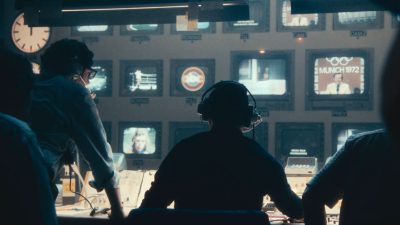

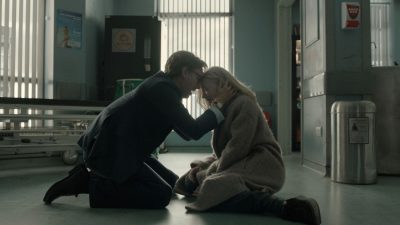

















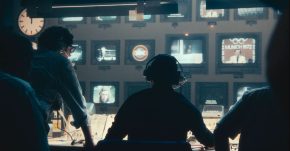

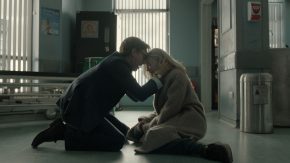


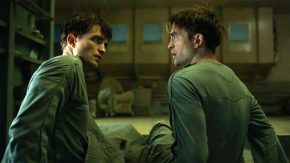
Comments